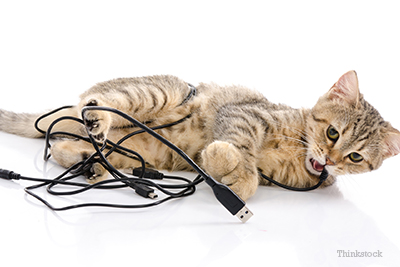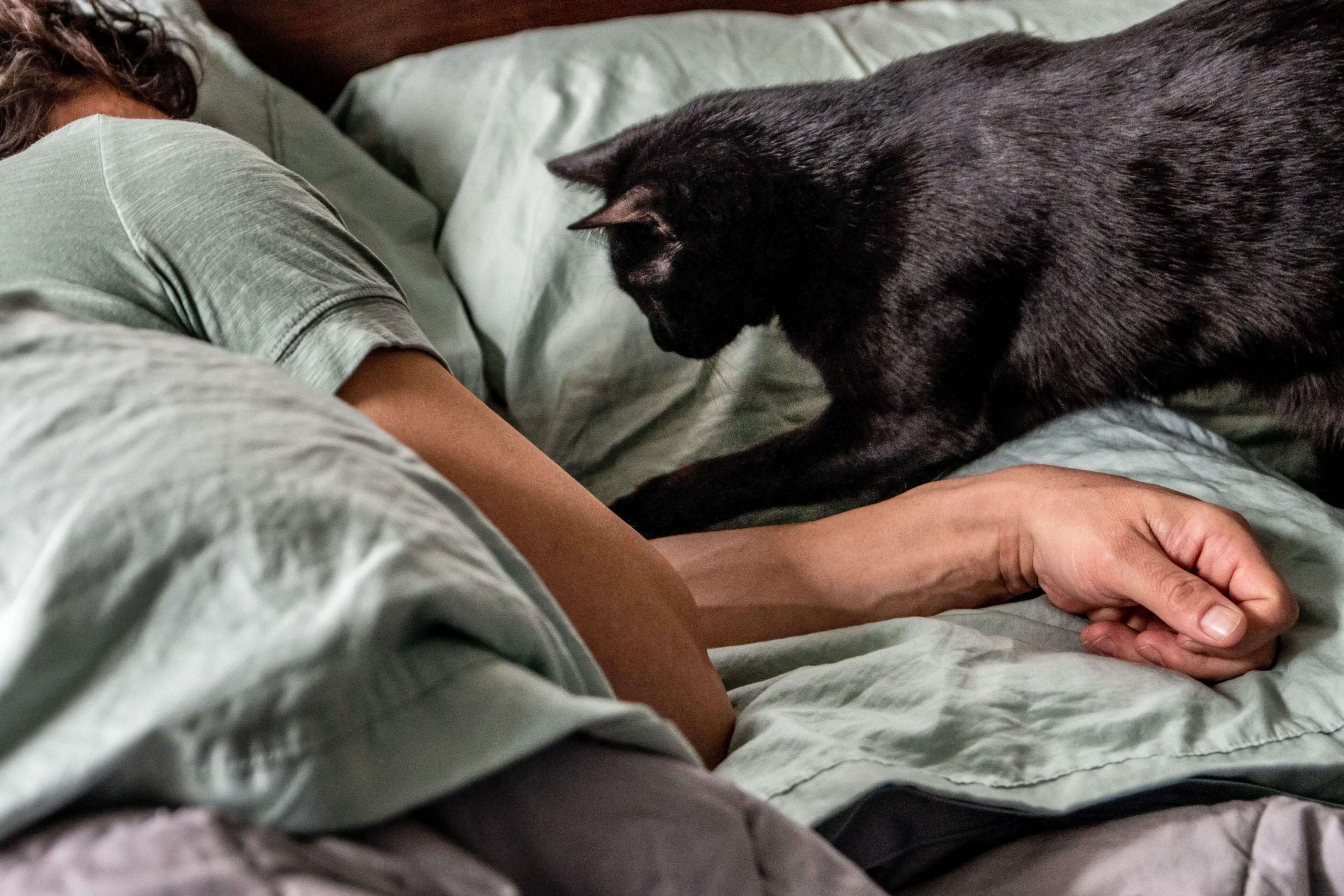When cats bite on chargers, it may indicate teething, playfulness, or an obsession with chewing certain textures. To stop your cat from biting your charger, provide a safe chewing alternative, use deterrents, or limit access to chargers.
Cats can exhibit some peculiar behavior, and biting on chargers is one of them. Many cat owners may have already experienced their feline friend nibbling on charger cords and leaving them damaged or even unsafe to use. While it may seem cute, it can be dangerous for both your cat and your electronics. The reasons why your cat bites on chargers can vary from a teething habit to playfulness or a need for stimulation. In this article, we will explore the reasons behind this behavior and provide helpful tips on how to stop your cat from biting your charger.

Credit: www.pethealthnetwork.com
Understanding Cat’S Behaviour
Cats are known for biting things, including chargers, and this behaviour can be frustrating for owners. Understanding why cats bite chargers is crucial for preventing it. One possible reason is that cats go through a teething phase where they want to chew on things to relieve discomfort in their gums.
Additionally, cats may bite chargers if they have misplaced behaviour, meaning they have associated the charger with playtime or attention. To stop this behaviour, owners can provide their cats with appropriate toys to chew on and redirect their attention away from chargers.
Using deterrents, such as bitter apple spray or double-sided tape, can also discourage cats from biting chargers. Understanding and addressing the reason behind cats’ behaviour is key to preventing it.
Effect Of Cat Biting On The Charger
It’s a common behavior for cats to bite cords and chargers. When your cat bites your charger, it can cause damage to the cord’s insulation and wires, which can lead to an electrical short circuit. This can be dangerous and can put the cat at risk of electric shock.
In addition, if your cat ingests any pieces of the damaged cord, it can cause harm to their digestive system. To prevent this problem, keep chargers and cords out of your cat’s reach, use cord protectors, and redirect their attention with toys and treats.
Encourage your cat to play with toys instead of biting or chewing cords. With consistent training and patience, you can help your cat break this dangerous habit and keep your chargers safe.
Preventive Measures
Cats are notorious for chewing on cables and chargers. This can lead to damage and pose a risk of electrocution. However, there are ways to prevent this behavior. Covering up the chargers with tape or sleeves can make them less attractive to feline teeth.
Diverting their attention with toys, scratching posts or treats can also help. Positive reinforcement training can work wonders by rewarding good behavior and discouraging bad. It’s important to note that punishment is never a good solution as it can cause anxiety and aggression in cats.
By taking simple measures and training your cat, you can keep your chargers safe and your feline buddy happy.
Alternative Solutions
One alternative solution to prevent your cat from biting your charger is to provide alternative toys and diversions for your cat to play with. Cats have a natural instinct to play, so providing toys such as balls, catnip toys, or interactive toys can help divert their attention away from your charger.
Another solution is to use cat repellents, such as citrus sprays or specific scents that cats dislike, to protect your charger. Consulting with a veterinarian and/or a behaviorist can also provide insight on why your cat is biting your charger and provide tailored solutions for your feline friend.
By implementing these alternative solutions, you can help your cat break the habit of biting your charger and protect your electronics from damage.
Conclusion
Cats have a tendency to chew on cords because they look like playthings. Prevent accidents by keeping cords out of sight, purchasing cord covers, and spraying unpleasant odor. Providing play toys for your cats also help divert their attention. Another option is to substitute cords with wireless chargers and use surge protectors.
Ensuring your cat has a full belly and reducing exposure to tension are two additional tips that can assist in curtailing biting and nibbling behaviors. Remember that attempting to match your cat with an alternate solution is a gradual process that requires patience and endurance.
Employing these tips can help you keep your cords safe and your pet healthy.



